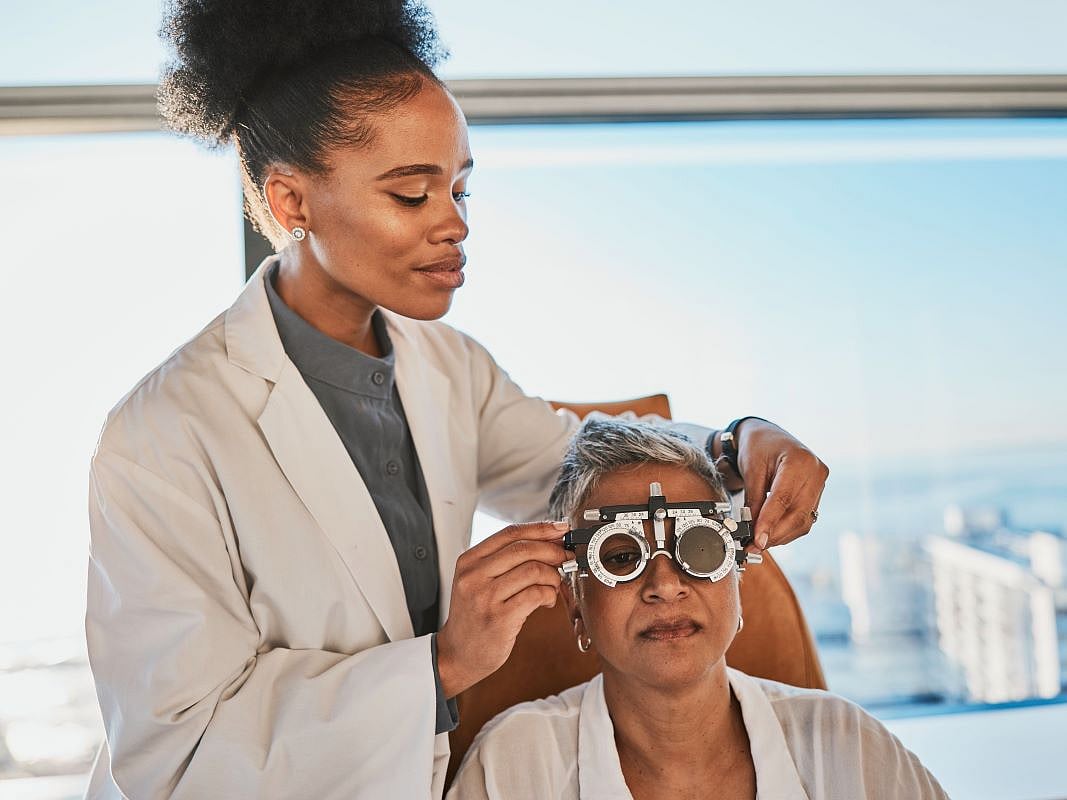Get Healthy!

- Dennis Thompson
- Posted June 20, 2025
HIV Drug Potentially Effective Against Diabetic Eye Disease
A cheap HIV drug might be able to help people with diabetes reverse a complication that can lead to blindness, a new small-scale study says.
The drug, lamivudine, appears to improve vision that’s being threatened by diabetic macular edema (DME), an eye condition in which fluid builds up in the retina, researchers reported recently in the journal Med.
It comes in pill form, which would offer diabetic patients an alternative to meds injected directly into their eyes, researchers added.
“An oral drug that improves vision in DME would be a game changer because it would be more convenient for patients than frequent, often monthly, injections into the eye,” senior researcher Dr. Jayakrishna Ambati, founding director of University of Virginia Health’s Center for Advanced Vision Science, said in a news release.
About 1 in 14 people with diabetes develop macular edema, researchers said in background notes.
The macula is the central part of the retina, the layer of light-sensitive cells along the back of the eye that converts light into signals for the brain.
In macular edema, leaky blood vessels make the macula swell, initially causing blurry or wavy vision, according to the National Eye Institute. If left untreated, it can eventually cause blindness.
Currently, people with DME are treated with regular injections of drugs that inhibit the growth of new blood vessels into the retina and macula, researchers said.
But researchers noted that lamivudine, which treats HIV by impeding the virus’ ability to replicate, also appears to reduce some biological processes involved in diabetes.
Specifically, the drug blocks the activity of inflammasomes, or immune system chemicals responsible for activating inflammatory responses in the body, researchers said. These have been implicated in the development of DME.
To see if lamivudine might help treat DME, researchers recruited 24 people between February 2022 and September 2023 with one or both eyes affected by the diabetic eye disease.
Of the group, 10 patients were randomly assigned to take 150 milligrams of lamivudine twice daily for eight weeks, and 14 were provided a placebo pill. Both groups also were receiving bevacizumab, an injectable drug that stops the formation of new blood vessels.
After four weeks, the lamivudine patients’ ability to read letters on an eye chart had improved by nearly 10 letters, or about two lines on the chart. The placebo patients had lost vision by about two letters.
And at eight weeks, lamivudine patients had gained about 17 letters, or more than three lines on the eye chart. The placebo group’s vision had improved by about letters letters on bevacizumab alone.
“A $20-a-month or even cheaper oral pill that improves vision as much as or more than therapy with injections into the eye that cost up to $2,000 per month could be transformative both for patients and the health care system,” Ambati said.
However, more clinical trials involving larger numbers of patients treated for longer periods of time are needed to definitively prove that lamivudine can stop or reverse DME, researchers said.
“The mechanism of action of lamivudine is different from that of existing treatments, so we could also develop combination therapies,” Ambati said.
“We have developed a safer version of lamivudine called K9, which blocks inflammasomes without the potential side effects of lamivudine,” he added. “So we are excited by the ongoing and planned clinical trials of K9 in DME as well.”
More information
The National Eye Institute has more on diabetic macular edema.
SOURCE: University of Virginia, news release, May 27, 2025
